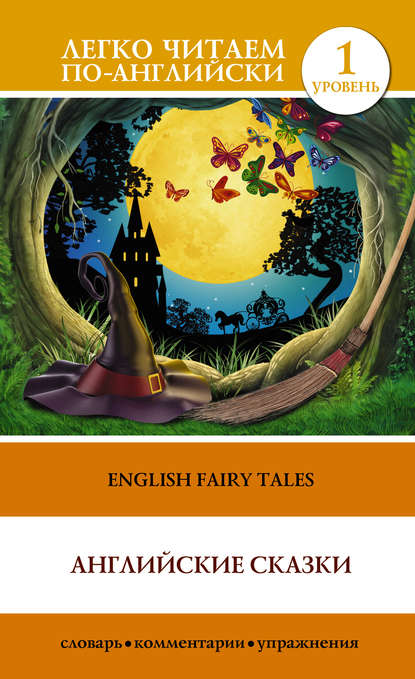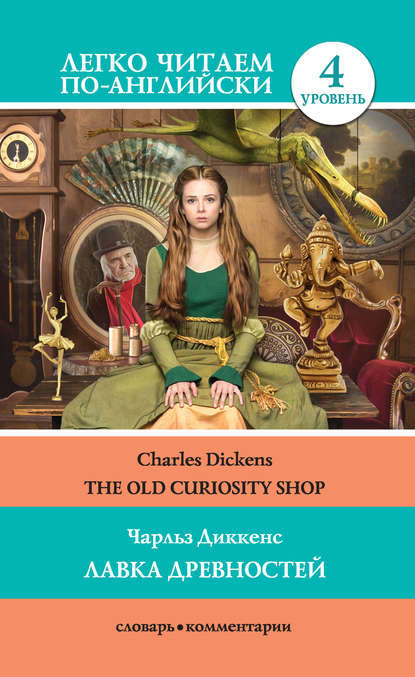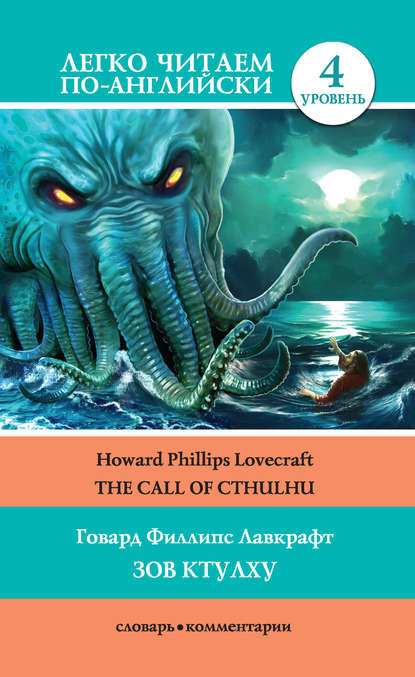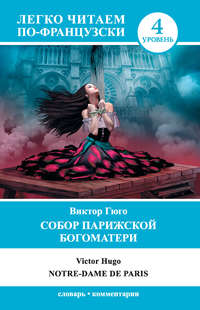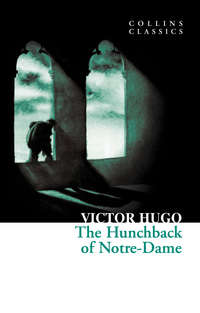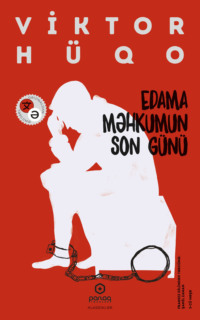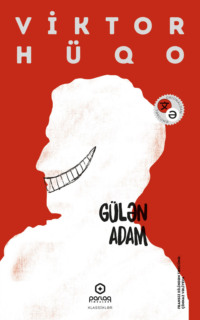
Полная версия
Человек, который смеется / The Man Who Laughs. Уровень 4
One day Barkilphedro said to Josiana, -
“Would your Grace like to make my fortune?”
“What do you want?”
“An appointment[26].”
“An appointment? for you!”
“Yes, madam.”
“What an idea! You, who are good for nothing.”
“That’s just the reason.”
Josiana burst out laughing.
“Which appointment do you desire?”
“That of cork drawer of the bottles[27] of the ocean.”
“What do you mean thou? You are fooling.”
“No, madam.”
“To amuse myself, I shall answer you seriously,” said the duchess. “What do you wish to be? Repeat it.”
“Uncorker of the bottles of the ocean.”
“Everything is possible at court. Is there an appointment of that kind?”
“Yes, madam.”
“This is news to me. Go on.”
“There is such an appointment at the Admiralty.”
“Then you wish…? Begin again.”
“To uncork the bottles of the ocean.”
“It is like grooming a bronze horse.”
“Very nearly.”
“Nothing to do. Well you are good for that much.”
“You see I am good for something.”
“Come! you are talking nonsense. Is there such an appointment?”
“Your Grace the sea is boundless: there is always something floating. This appointment is vacant now. The appointment exists. There is for the office a room and lodgings at the Admiralty.”
“And how is one paid?”
“One hundred guineas a year. It is enough to live upon.”
“Like a beggar. It’s a bagatelle.”
“What keeps you for a minute, keeps us for a year. That’s the advantage of the poor.”
“You will have the place.”
A week afterwards, Barkilphedro was installed at the Admiralty.
There is one thing: people are ungrateful. Having received so many benefits from Josiana, Barkilphedro had naturally but one thought – to revenge himself on her. When we add that Josiana was beautiful, great, young, rich, powerful, illustrious, while Barkilphedro was ugly, little, old, poor, dependent, obscure, he must necessarily revenge himself for all this as well.
Barkilphedro was an Irishman who had denied Ireland. This man was full of malice.
What was Barkilphedro’s age? It is difficult to say. The age necessary for his project of the moment. He was old in his wrinkles and gray hairs, young in the activity of his mind. He was active and ponderous; a sort of hippopotamus-monkey. A royalist, certainly; a republican – who knows? A Catholic, perhaps; a Protestant, without doubt. To be For is a power only on the condition of being at the same time Against. Barkilphedro practised this wisdom.
What was Barkilphedro? That meanest and most terrible of men – an envious man. Envy is good stuff to make a spy.
Barkilphedro had other qualities. He was discreet, secret, concrete. He was liked by those whom he amused, and hated by all others. He felt that he was disdained by those who hated him, and despised by those who liked him. He restrained himself. He was indignant. To swallow everything was his talent.
He was kind, prompt, easy, amiable, obliging. Never mind to whom, never mind where, he bowed. Barkilphedro’s body was obese and his face lean. A fat bust and a bony countenance. His nose, long, sharp, and flabby, nearly met his mouth. Patience, temperance, continence, reserve, self-control, amenity, deference, gentleness, politeness, sobriety, chastity, completed and finished Barkilphedro. In a short time Barkilphedro took a foothold at court[28].
Besides the queen, Barkilphedro secretly worked, influenced, and plotted upon Lady Josiana and Lord David. Barkilphedro became a necessity. Many great people honoured him with their confidence.
Josiana reposed such confidence in him that she had entrusted him with one of the keys of her apartments, by means of which he was able to enter them at any hour. This was in fashion in the seventeenth century. It was called “giving the key.” Josiana had given two of these confidential keys – Lord David had one, Barkilphedro the other.
BARKILPHEDRO IN AMBUSCADE
To find the vulnerable spot in Josiana, and to strike her there, was the imperturbable determination of Barkilphedro. But how? That was the question.
With Barkilphedro the ground was Queen Anne. Barkilphedro approached the queen, and so close that sometimes he fancied he heard the monologues of her Majesty. How did the queen feel towards the Duchess Josiana? Did she wish her good or evil?
Here was the problem. Barkilphedro set himself to solve it. Divers chances served Barkilphedro.
Anne was, on her husband’s side, slightly related to the new Queen of Prussia. One day, in the presence of Barkilphedro, Anne asked the ambassador some question about this Drika.
“They say she is rich?”
“Very rich.”
“She has palaces?”
“More magnificent than those of her sister, the queen.”
“Whom will she marry?”
“A great lord, the Count Gormo.”
“Pretty?”
“Charming.”
“Is she young?”
“Very young.”
“As beautiful as the queen?”
The ambassador lowered his voice, and replied, -
“More beautiful.”
“That is insolent,” murmured Barkilphedro.
The queen was silent; then she exclaimed, -
“Those bastards!”
Another time, when the queen was leaving the chapel, Barkilphedro kept pretty close to her Majesty, behind the two grooms. Lord David Dirry-Moir made a sensation by his handsome appearance. As he passed there was an explosion of feminine exclamations.
“How elegant! How gallant! What a noble air! How handsome!”
“How disagreeable!” grumbled the queen.
Barkilphedro overheard this. He could hurt the duchess without displeasing the queen. The first problem was solved; but now the second presented itself.
What could he do to harm the duchess?
One day Lady Josiana asked Lord David, -
“What can drive my spleen away?”
Lord David stopped, looked at Josiana, shut his mouth, and inflated his cheeks, which signified attention, and said to the duchess, -
“For spleen there is but one remedy.”
“What is it?”
“Gwynplaine.”
The duchess asked, -
“And who is Gwynplaine?”
GWYNPLAINE AND DEA
Nature had bestowed on Gwynplaine a mouth opening to his ears, ears folding over to his eyes, a shapeless nose to support the spectacles, and a face that no one could look upon without laughing.
Gwynplaine was a mountebank. He showed himself on the platform. Hypochondriacs were cured by the sight of him alone. He was avoided by folks in mourning, because they were compelled to laugh when they saw him. One day the executioner came, and Gwynplaine made him laugh. He spoke, and the people rolled on the ground.
It was Gwynplaine’s laugh which created the laughter of others, yet he did not laugh himself. His face laughed; his thoughts did not. The extraordinary face which chance or a special and weird industry had fashioned for him, laughed alone. Gwynplaine had nothing to do with it. The outside did not depend on the interior. The laugh which he had not placed, himself, on his brow, on his eyelids, on his mouth, he could not remove.
On seeing Gwynplaine, all laughed. When they had laughed they turned away their heads. Women especially shrank from him with horror. The man was frightful. Gwynplaine was intolerable for a woman to see, and impossible to contemplate. But he was tall, well made, and agile, and no way deformed, excepting in his face.
This led to the presumption that Gwynplaine was rather a creation of art than a work of nature. Gwynplaine, beautiful in figure, had probably been beautiful in face. At his birth he had no doubt resembled other infants.
Behind his laugh there was a soul, dreaming, as all our souls dream. However, his laugh was to Gwynplaine quite a talent. He could do nothing with it. By means of it he gained his living.
Gwynplaine, as you have doubtless already guessed, was the child abandoned one winter evening on the coast of Portland, and received into a poor caravan at Weymouth.
That boy was at this time a man. Fifteen years had elapsed. It was in 1705. Gwynplaine was twenty-five years old.
Ursus had kept the two children with him. They were a group of wanderers. Ursus and Homo had aged. Ursus had become quite bald. The wolf was growing gray.
The little girl found on the dead woman was now a tall creature of sixteen, with brown hair, slight, fragile, admirably beautiful, her eyes full of light, yet blind. That fatal winter had killed the mother and blinded the child. Her eyes, large and clear, had a strange quality: to others they were brilliant. They were mysterious torches lighting only the outside. They gave light.
In her dead look there was a celestial earnestness. She was the night, she was a star. Ursus, with his mania for Latin names, had christened her Dea. He had taken his wolf into consultation. He had said to him,
“You represent man, I represent the beasts. We are of the lower world; this little one will represent the world. Human, animal, and Divine.”
The wolf made no objection. Therefore the girl was called Dea.
As to Gwynplaine, Ursus had not had the trouble of inventing a name for him. He had asked him,
“Boy, what is your name?” and the boy had answered,
“They call me Gwynplaine.”
“Be Gwynplaine, then,” said Ursus.
Dea assisted Gwynplaine in his performances. Mankind was for Gwynplaine, as for Dea, an exterior fact. She was alone, he was alone. The isolation of Dea was funereal, she saw nothing; that of Gwynplaine sinister, he saw all things. Nothing was infinite to her but darkness. For Gwynplaine to live was to have the crowd for ever before him and outside him. They had reached the depth of possible calamity; they had sunk into it, both of them. And they were in a Paradise. They were in love. Gwynplaine adored Dea. Dea idolized Gwynplaine.
“How handsome you are!” she would say to him.
TRUE EYES
Only one woman on earth saw Gwynplaine. It was the blind girl. She had learned what Gwynplaine had done for her, from Ursus, to whom he had related his rough journey from Portland to Weymouth, and the many sufferings which he had endured. He had given her his rags, because she was cold; he had given her food and drink. Dea knew that as a child he had done this, and that now as a man, he was strength to her weakness, riches to her poverty, healing to her sickness, and sight to her blindness. Through the mist of the unknown, she distinguished clearly his devotion, his abnegation, his courage. Dea quivered with certainty and gratitude, her anxiety changed into ecstasy. Kindness is the sun; and Gwynplaine dazzled Dea.
To the crowd, Gwynplaine was a clown, a merry-andrew[29], a mountebank, a creature grotesque, a little more and a little less than a beast. The crowd knew only the face.
For Dea, Gwynplaine was the saviour, who made life tolerable; the liberator, whose hand guided her through that labyrinth called blindness. Gwynplaine was her brother, friend, guide, support; the personification of heavenly power; the husband, winged and resplendent. Where the multitude saw the monster, Dea recognized the archangel. Blind Dea perceived his soul.
Ursus, a philosopher, understood that. He approved of the fascination of Dea. He said,
“The blind see the invisible. Conscience is vision”.
Then, looking at Gwynplaine, he murmured,
“Semi-monster, but demi-god”.
Gwynplaine, on the other hand, was madly in love with Dea.
There is the invisible eye, the spirit, and the visible eye, the pupil. He saw her with the visible eye. Dea was dazzled by the ideal; Gwynplaine, by the real. Gwynplaine was not ugly; he was frightful. Dea was sweet. He was horror; she was grace. Dea was his dream. She was almost an angel, and yet just a woman.
Gwynplaine and Dea were united, and these two suffering hearts adored each other. One nest and two birds – that was their story. They had begun to feel a universal law – to please, to seek, and to find each other.
THE BLUE SKY THROUGH THE BLACK CLOUD
Thus lived these unfortunate creatures together – Dea and Gwynplaine. These orphans were all in all to each other, the feeble and the deformed. An inexpressible thanksgiving arose out of their distress. They were grateful. To whom? To the obscure immensity. Be grateful in your own hearts. That suffices.
Gwynplaine and Dea were grateful. Deformity is expulsion. Blindness is a precipice. Gwynplaine was no longer deformed. He was beloved. The abjection of the disfigured man was exalted and dilated into intoxication, into delight, into belief; and a hand was stretched out towards the melancholy hesitation of the blind girl, to guide her in her darkness.
The rejected found a refuge in each other. They held together by what they lacked: in that in which one was poor, the other was rich. The misfortune of the one made the treasure of the other. Had Dea not been blind, would she have chosen Gwynplaine? Had Gwynplaine not been disfigured, would he have preferred Dea? What happiness for Dea that Gwynplaine was hideous! What good fortune for Gwynplaine that Dea was blind! Gwynplaine saved Dea. Dea saved Gwynplaine.
Gwynplaine had a thought – “What should I be without her?” Dea had a thought – “What should I be without him?” The exile of each made a country for both. They belonged to each other; they knew themselves. They were inexpressibly happy. In their hell they had created heaven. Such was your power, O Love! Dea heard Gwynplaine’s laugh; Gwynplaine saw Dea’s smile. Thus the mysterious problem of happiness was solved; and by whom? By two outcasts.
For Gwynplaine, Dea was splendour. For Dea, Gwynplaine was presence. Gwynplaine was the religion of Dea. Sometimes, lost in her sense of love towards him, she knelt, like a beautiful priestess.
These happy creatures dwelt in the ideal world. They were spouses in it at distances as opposite as the spheres. Their kisses were the kisses of souls.
They had always lived a common life. They knew themselves only in each other’s society. The infancy of Dea had coincided with the youth of Gwynplaine. They had grown up side by side. For a long time they had slept in the same bed, for the hut was not a large bedchamber. They lay on the chest, Ursus on the floor; that was the arrangement. One fine day, whilst Dea was still very little, Gwynplaine felt himself grown up. He said to Ursus,
“I will also sleep on the floor.”
And at night he stretched himself, with the old man, on the bear skin. Then Dea wept. She cried; but Gwynplaine, become restless because he had begun to love, decided to remain where he was. From that time he always slept by the side of Ursus on the planks. In the summer, when the nights were fine, he slept outside with Homo.
Such was the idyll blooming in a tragedy. Ursus said to them, -
“Old brutes, adore each other!”
URSUS AS TUTOR, AND URSUS AS GUARDIAN
Ursus added, -
“Some of these days I will play them a nasty trick. I will marry them.”
Ursus taught Gwynplaine the theory of love. He said to him, -
“Do you know how the Almighty lights the fire called love? He places the woman underneath, the devil between, and the man at the top. A match – that is to say, a look – is enough.”
“A look is unnecessary,” answered Gwynplaine, thinking of Dea.
And Ursus replied, -
“Fool! Do souls require mortal eyes to see each other?”
Ursus was a good fellow at times. Gwynplaine, sometimes madly in love with Dea, became melancholy. Ursus would say to himself, -
“They love each other too much. This may have its disadvantages. Let us avoid a fire. Let us moderate these hearts.”
Then Ursus warned Dea, -
“Dea, you must not be so fond of Gwynplaine. To live in the life of another is perilous. Egoism is a good root of happiness. Men escape from women. Gwynplaine’s success is so great! You have no idea how great his success is!”
And to Gwynplaine, -
“Gwynplaine, disproportions are no good. So much ugliness on one side and so much beauty on another will compel reflection. Temper your ardour, my boy. Do not become too enthusiastic about Dea. Do you seriously consider that you are made for her? Just think of your deformity and her perfection! See the distance between her and yourself. She has everything, this Dea. What a white skin! What hair! Lips like strawberries! And her foot! her hand! Those shoulders, with their exquisite curve! She walks diffusing light; and the tone of her voice is charming. But for all this, to think that she is a woman! She would not be such a fool as to be an angel. She is absolute beauty. Repeat all this to yourself, to calm your ardour.”
These speeches redoubled the love of Gwynplaine and Dea, and Ursus was astonished at this. Did he, then, desire to extinguish their love, or to cool it even?
Certainly not. At the bottom of his heart this love, which was flame for them and warmth for him, was his delight. But it is natural to grate a little against that which charms us; men call it wisdom.
Ursus had been, in his relations with Gwynplaine and Dea, almost a father and a mother. Grumbling all the while, he had brought them up; grumbling all the while, he had nourished them.
We may observe, however, that after the first few years, when Gwynplaine was nearly grown up, and Ursus had grown quite old, Gwynplaine had taken his turn, and drawn Ursus.
This family of an old man and two children, with a wolf, had become, as they wandered, a group more and more intimately united. Ursus had encrusted Gwynplaine as much as possible with all he himself possessed of science and wisdom.
He repeated constantly to Gwynplaine, -
“Be a philosopher. To be wise is to be invulnerable. You see what I am, I have never shed a tear. This is the result of my wisdom.”
Ursus, in one of his monologues in the hearing of the wolf, said, -
“I have taught Gwynplaine everything, Latin included. I have taught Dea nothing, music included.”
He had taught them both to sing. Their concerts attracted the crowd.
“No matter,” said Ursus. “I will marry them.”
Then he grumbled to himself, -
“They are quite tiresome with their love.”
Once Gwynplaine kissed the arm of Dea – ideal kiss of a deformed mouth! Dea felt a deep delight; she blushed like a rose. Dea pulled up her sleeve, and stretching towards Gwynplaine her naked arm, said, -
“Again!”
Gwynplaine fled.
The next day the game was renewed, with variations. It was a heavenly subsidence into that sweet abyss called love. At such things heaven smiles philosophically.
BLINDNESS AND CLAIRVOYANCE
At times Gwynplaine reproached himself. He thought that to allow a woman who could not see him to love him was to deceive her. What would she say if she suddenly obtained her sight? A bitter scruple harassed him. He told himself that such a monster as he had no right to love. He was a hydra idolized by a star. It was his duty to enlighten the blind star.
One day he said to Dea, -
“You know that I am very ugly.”
“I know that you are beautiful,” she answered.
Конец ознакомительного фрагмента.
Текст предоставлен ООО «ЛитРес».
Прочитайте эту книгу целиком, купив полную легальную версию на ЛитРес.
Безопасно оплатить книгу можно банковской картой Visa, MasterCard, Maestro, со счета мобильного телефона, с платежного терминала, в салоне МТС или Связной, через PayPal, WebMoney, Яндекс.Деньги, QIWI Кошелек, бонусными картами или другим удобным Вам способом.
Примечания
1
quack medicine – шарлатанские снадобья
2
now and then – порой
3
Engastrimythos – энгастримит, «говорящий животом» – чревовещатель
4
Buffon – Жорж-Луи Леклерк де Бюффон (1707–1788), французский натуралист, биолог, математик
5
Low Countries – Нидерланды
6
charged mine – заряженная мина
7
wandering gangs – бродячие шайки
8
Comprachicos – компрачикосы, скупщики детей, преступное сообщество торговцев детьми
9
tête-à-tête – наедине (фр.)
10
penal laws – уголовные кодексы
11
misshapen creature – уродец
12
got in his way – стесняла движения
13
north-wester – северо-западный ветер
14
all of a sudden – вдруг
15
aurora borealis – северное сияние
16
had just set due north – стал дуть прямо с севера
17
set all sail – поднять все паруса
18
told her beads – перебирала чётки
19
The hold is full. – Трюм полон.
20
make for land – плыть к берегу
21
at random – наугад
22
sound sleep – крепкий сон
23
at length – наконец
24
To arms! – К оружию!
25
fine language – высокий слог
26
appointment – должность
27
cork drawer of the bottles – откупорщик бутылок
28
took a foothold at court – прочно обосновался при дворе
29
merry-andrew – фигляр




